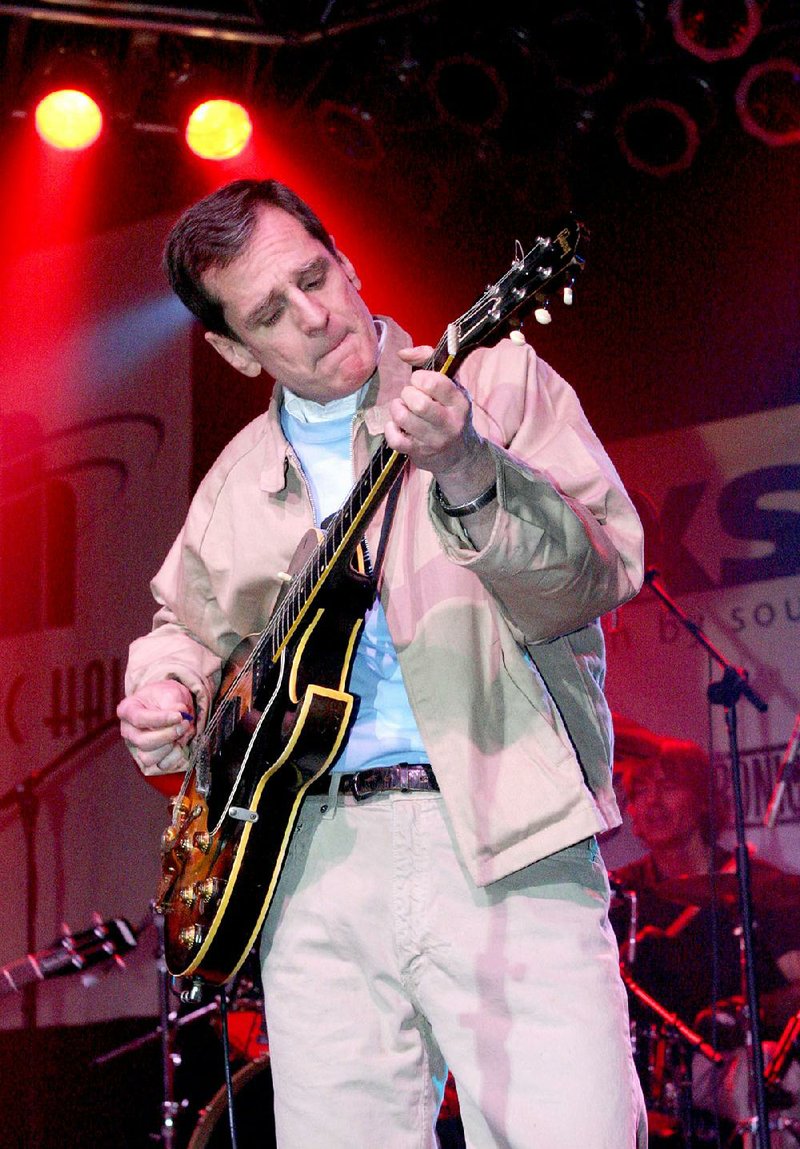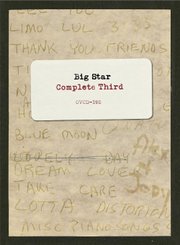Big Star's Third, when it was being made by singer-songwriter Alex Chilton at Ardent Studios in Memphis in 1974, wasn't really a Big Star album, nor was it even called Third.
Chilton and drummer Jody Stephens were the only two members of the criminally overlooked power-pop pioneers Big Star still standing. Co-founder Chris Bell split after the band's first album, #1 Record; bassist Andy Hummel was gone after the second, Radio City. And Chilton, having been given the keys to Ardent Studios by owner, friend and Big Star producer/engineer John Fry, was basically recording a lot of this stuff after hours in a druggy and boozy haze with his girlfriend/muse Lesa Aldridge, and later with Little Rock native, producer and free spirit Jim Dickinson.
The story goes that when the final tracks were played for Lenny Waronker of Warner Bros., in hopes the label would release the record, the executive moaned, "I don't have to listen to that again, do I?"
Atlantic Records' Jerry Wexler was actually creeped out. "This record makes me feel very uncomfortable," he said.
Spoiler alert: neither label released the album.
When it finally did see the light of day on indie PVC in 1978, it was randomly sequenced, credited to Big Star and called Third.
Not many people paid attention. Those who did, however, sang its praises and a loyal cult blossomed around this collection of wrecked and soul-damaged pop from the polluted and mischievous minds of Chilton and Dickinson, the latter of whom actually used a deflated basketball as a percussion instrument on one track.
After years of being praised by the likes of R.E.M., Teenage Fanclub, The Replacements and others, Third was lovingly repackaged by Rykodisc in 1992 as Third/Sister Lovers, and its fractured songs found a new audience.
Big Star Complete Third, the new three-CD set released by Omnivore Recordings, goes even deeper, allowing the listener to hear the album develop -- from Chilton's first demos and rough mixes to final masters.
Compiled by producer Cheryl Pawelski and Ardent Studios producer/engineer Adam Hill, there are 69 songs in all, with a whopping 29 released here for the first time.
Like a lot of folks, I first heard of Big Star through Minneapolis' scruffy punks The Replacements and their song "Alex Chilton," from the 1987 album Pleased to Meet Me (also produced by Dickinson at Ardent). A Memphis record store clerk rightfully pointed me to Big Star when I asked about Chilton's work, and I was soon in the clutches of #1 Record and Radio City -- two slabs of pristine pop-rock made by four Southern anglophiles obsessed with The Beatles and The Kinks. The discs tanked with the public when first released, but were praised by critics and eventually developed devoted followings among rock geeks.
Third was moodier and slower. It had some of my favorite Big Star songs -- "O, Dana," "Kizza Me," "Stroke It, Noel" -- the ones that found their way to mix tapes and digital playlists over the years, but its overall atmosphere was difficult. I didn't return to it that often. It sounded like something breaking, slowly.
By all accounts Chilton, who became famous as a teen singing in The Box Tops on hits "The Letter," "Soul Deep" and "Cry Like a Baby," wasn't in the best place emotionally and physically during the recording of what became Third. There was lots of booze and drugs and cavorting about with his pals in the dissolute midtown Memphis night. Also, he and Aldridge had a particularly tempestuous, sometimes violent, relationship.
It's sometimes hard to fathom that the guy who co-wrote "Thirteen," the touching, acoustic portrait of adolescent love on #1 Record, is the same writer behind Third's bleaker passages.
It's interesting to hear the subtle metamorphosis of the haunting dirge "Holocaust," which would become Third's downer epic. Chilton's voice, accompanied by spare piano, is soft and bitter -- "You're a wasted face/you're a sad-eyed lie/you're a holocaust" he sings. In the second version, with Dickinson's mix, there are buzzing strings that sound more strafed than played that add to the brokenness and horror. Fry's rough mix sounds somehow even slower.
There are four versions of the somnambulent "Big Black Car," with Chilton's pair of mostly acoustic takes on the first disc, tentatively playing with the arrangement, before it reaches its final form, highlighted by Stephens' perfectly lazy drum beat and the song's sleepy echo.
"Kanga Roo" starts the first disc as the acoustic "Like Saint Joan (Kanga Roo)" and evolves into the sadly beautiful study it became in Fry's rough mix and on the final master.
Perhaps the most Big Star-like track of the finished album is "Thank You, Friends," which is either a heartfelt nod to boon companions, or a cynical, sneering put-down -- I've never been able to tell which and the multiple versions here don't shed much light, other than to confirm its spot as a classic power-pop anthem. It's also the only Chilton-penned song on Third that has a traditional verse-chorus-verse structure.
The Big Star ranks are decimated now. Founding member Chris Bell was killed in a car wreck in 1978; Dickinson died in 2009; Chilton died in 2010, as did Hummel; Fry, the gifted producer and engineer who founded Ardent and worked on each Big Star album, died in 2014, leaving Stephens as the only band member remaining. (The ever-youthful Stephens still works at Ardent and has a new band called Those Pretty Wrongs.)
But there has been greater interest in the band over the past few years. Perhaps you're familiar with the band's "In the Streets," covered by Cheap Trick in the opening credits of the TV series That '70s Show. The 2012 documentary Big Star: Nothing Can Hurt Me did a fine job telling the group's story of promise and failure. Holly George-Warren's illuminating 2014 biography A Man Called Destruction: The Life and Music of Alex Chilton, From Box Tops to Big Star to Backdoor Man finally captured the tale of the capricious Chilton (his solo albums ranged from avant punk -- Like Flies on Sherbert -- to sloppy roots rock -- A Man Called Destruction. He also left music for a while in the early '80s, working as a tree trimmer and a dish washer in New Orleans). And Stephens, who was in a Big Star reunion band with Chilton starting in the early '90s that resulted in 2005's poorly received studio album In Space, has recently played Third in its entirety at a series of shows with acolytes like Jeff Tweedy of Wilco, Ira Kaplan of Yo La Tengo and others.
Now Complete Third finally gives devotees a look at the bones and sinew of this singular piece of art and how it fitfully came to be. It has given me a much deeper appreciation for this troubled yet stunning record.
May the light of this Big Star always shine.
Style on 10/09/2016

